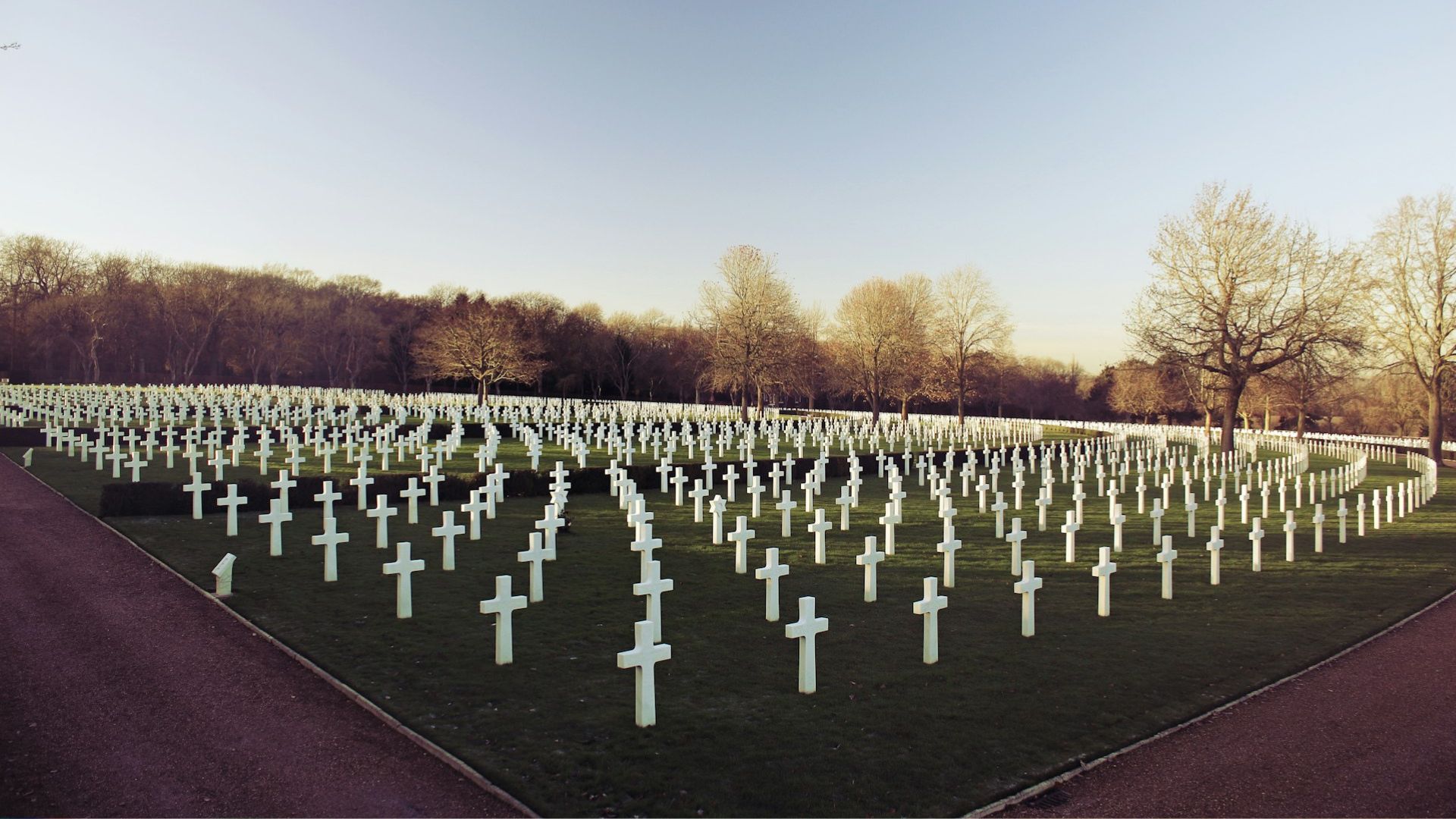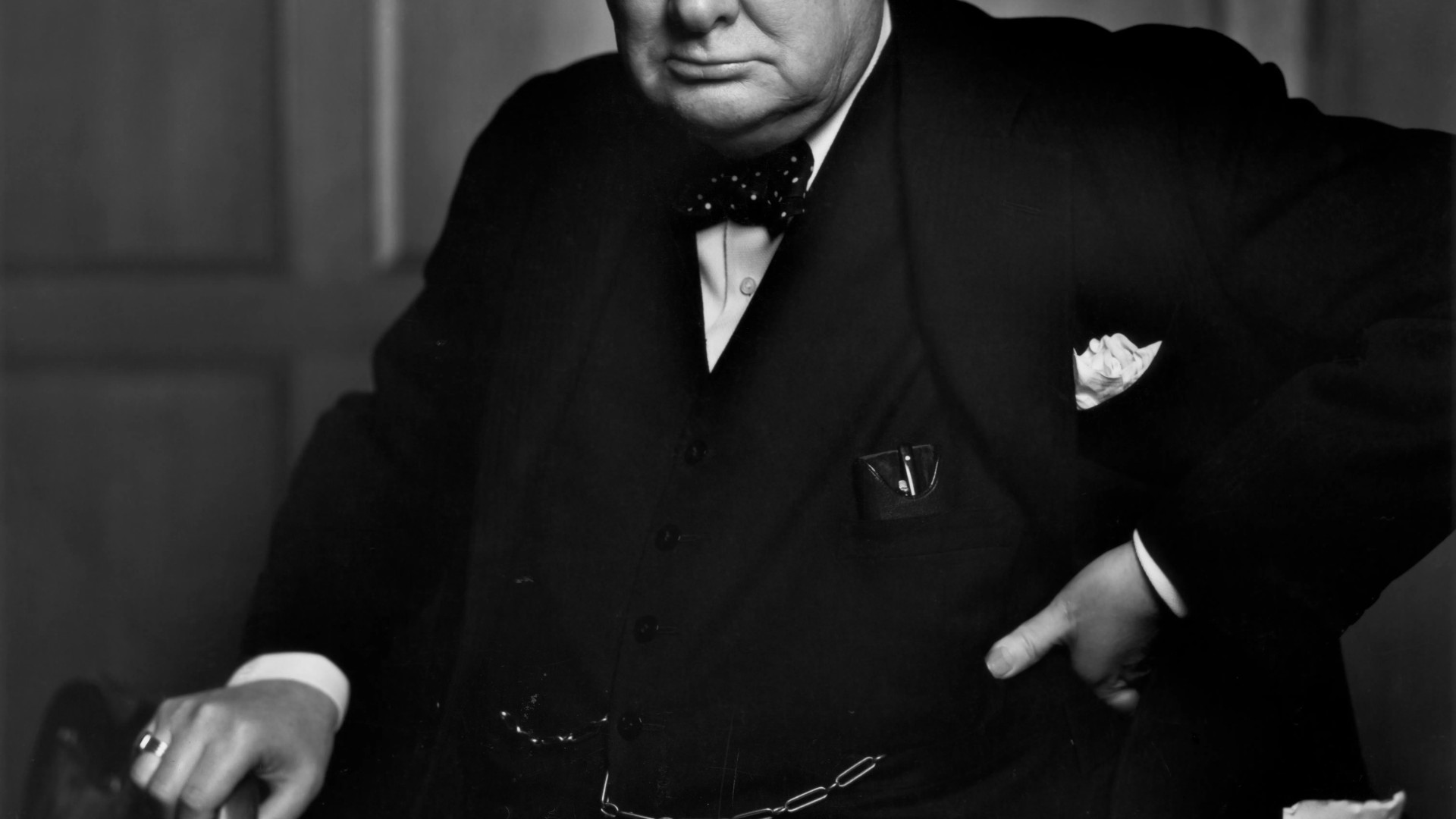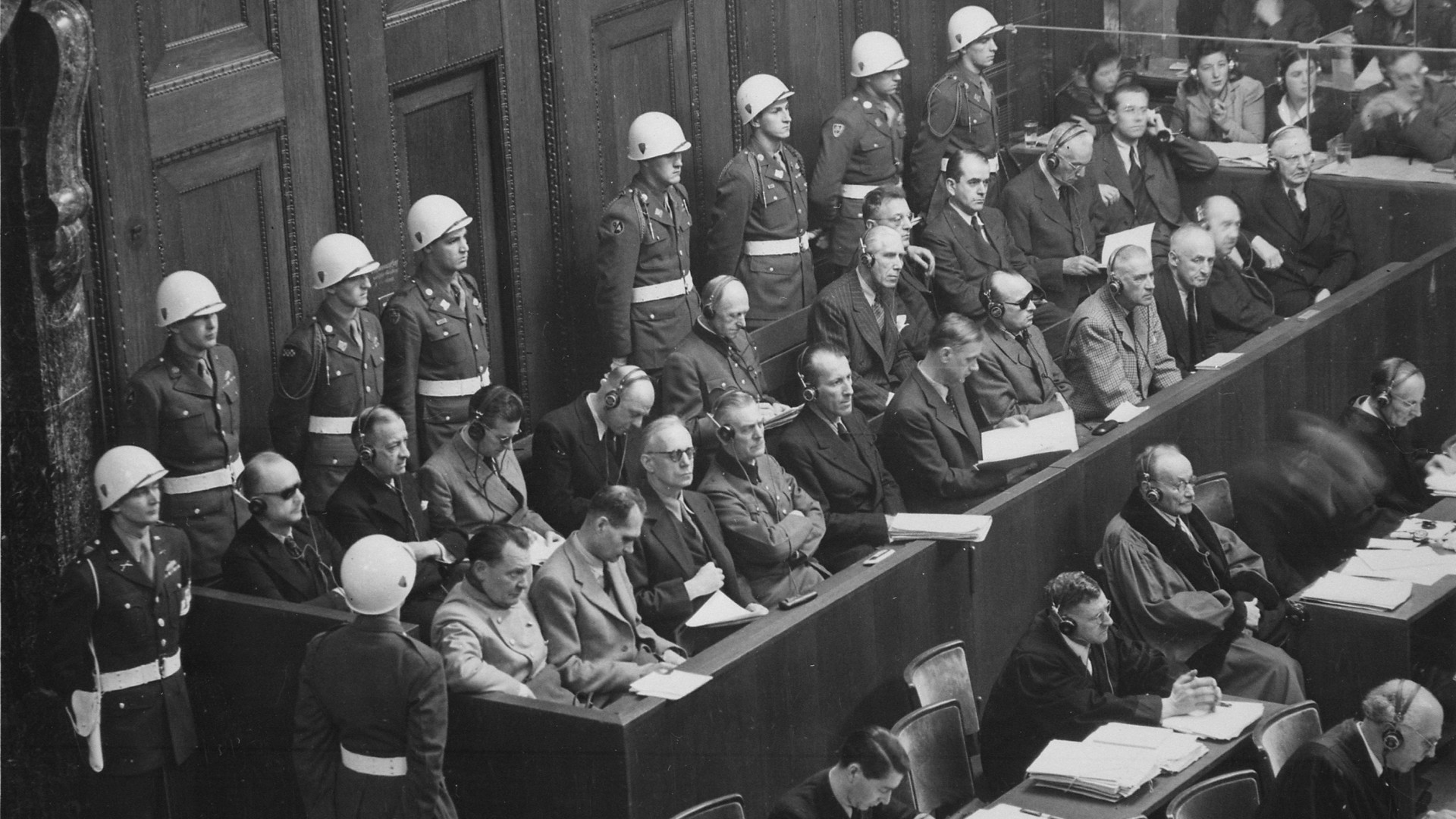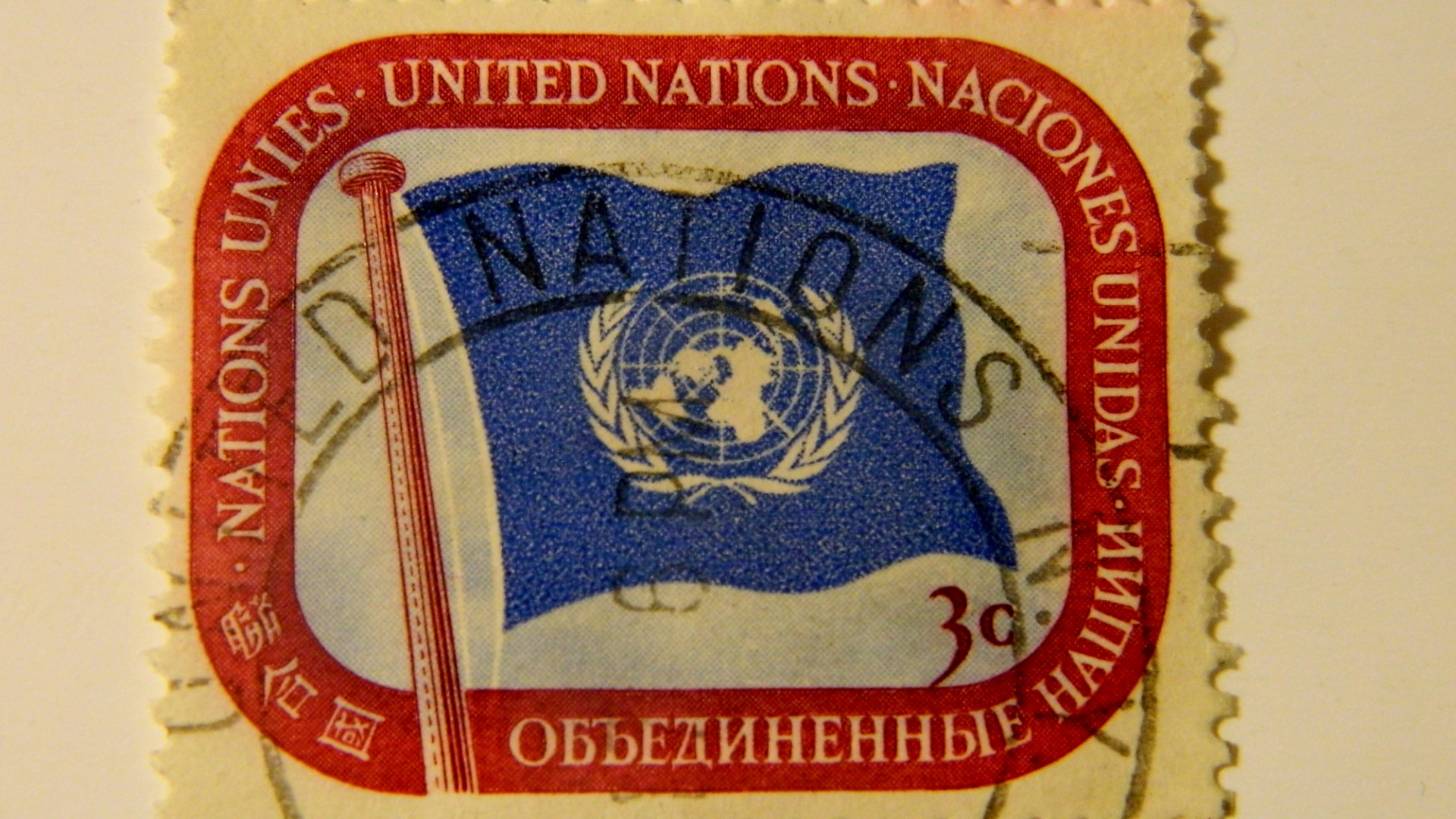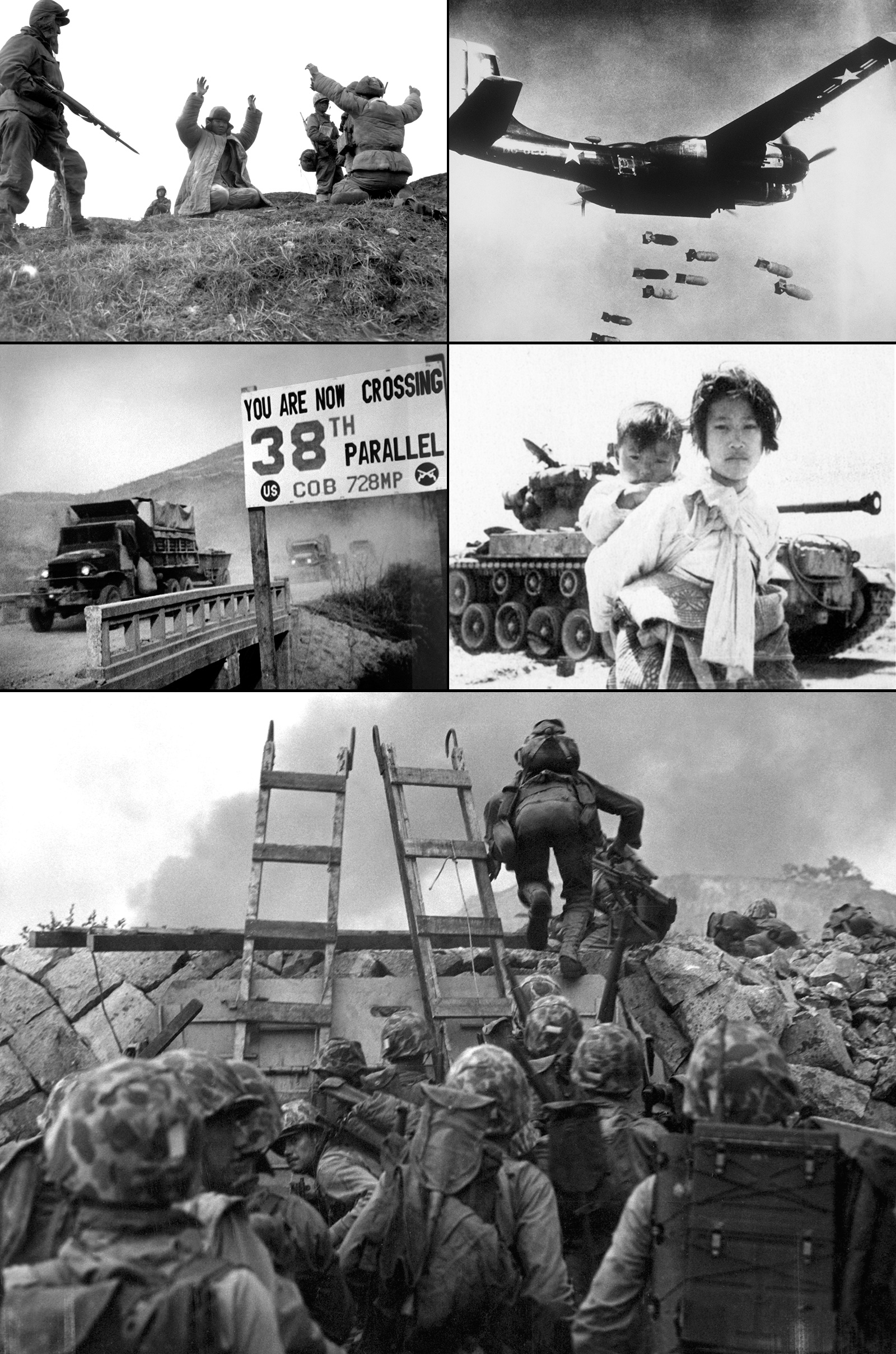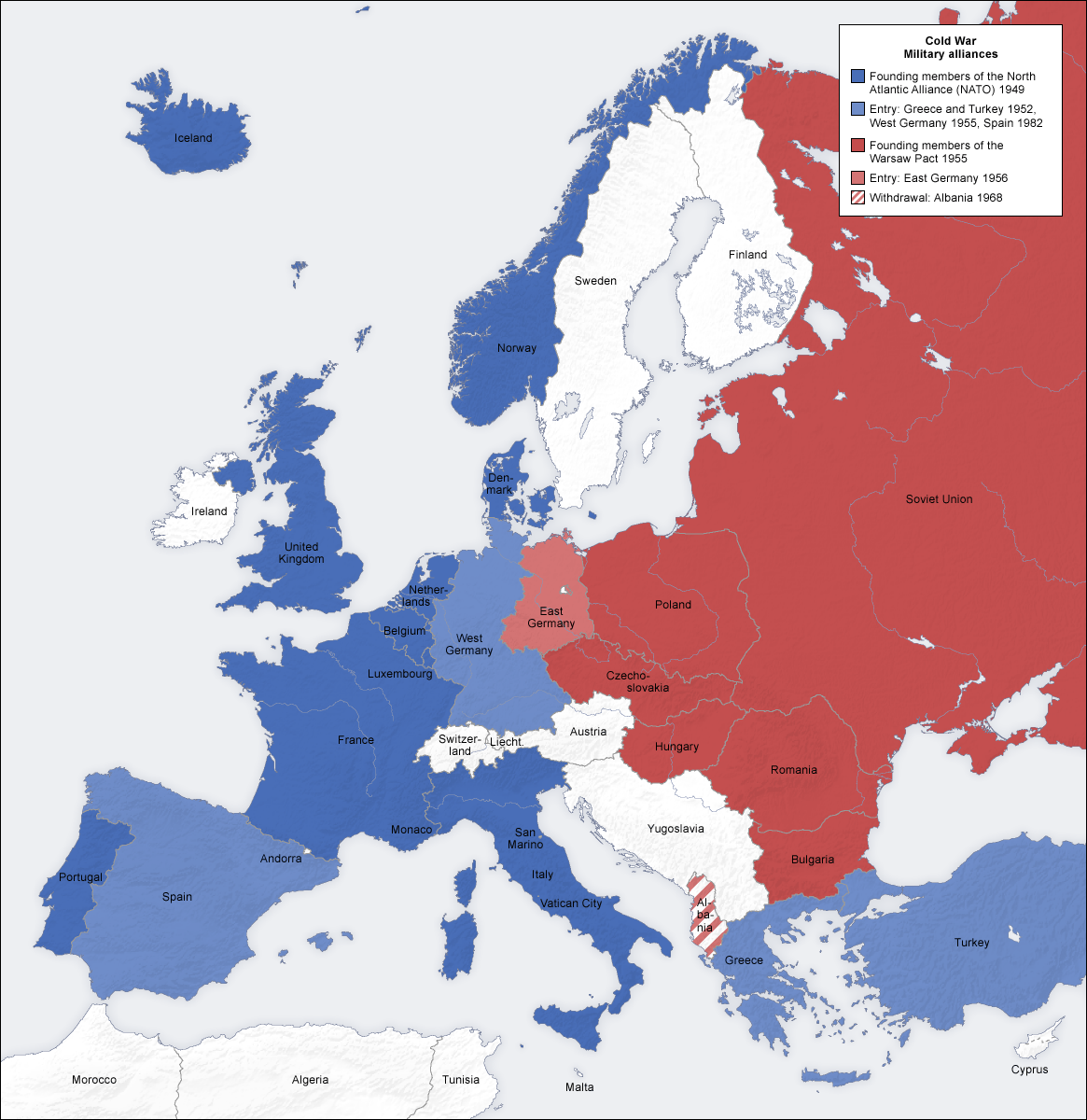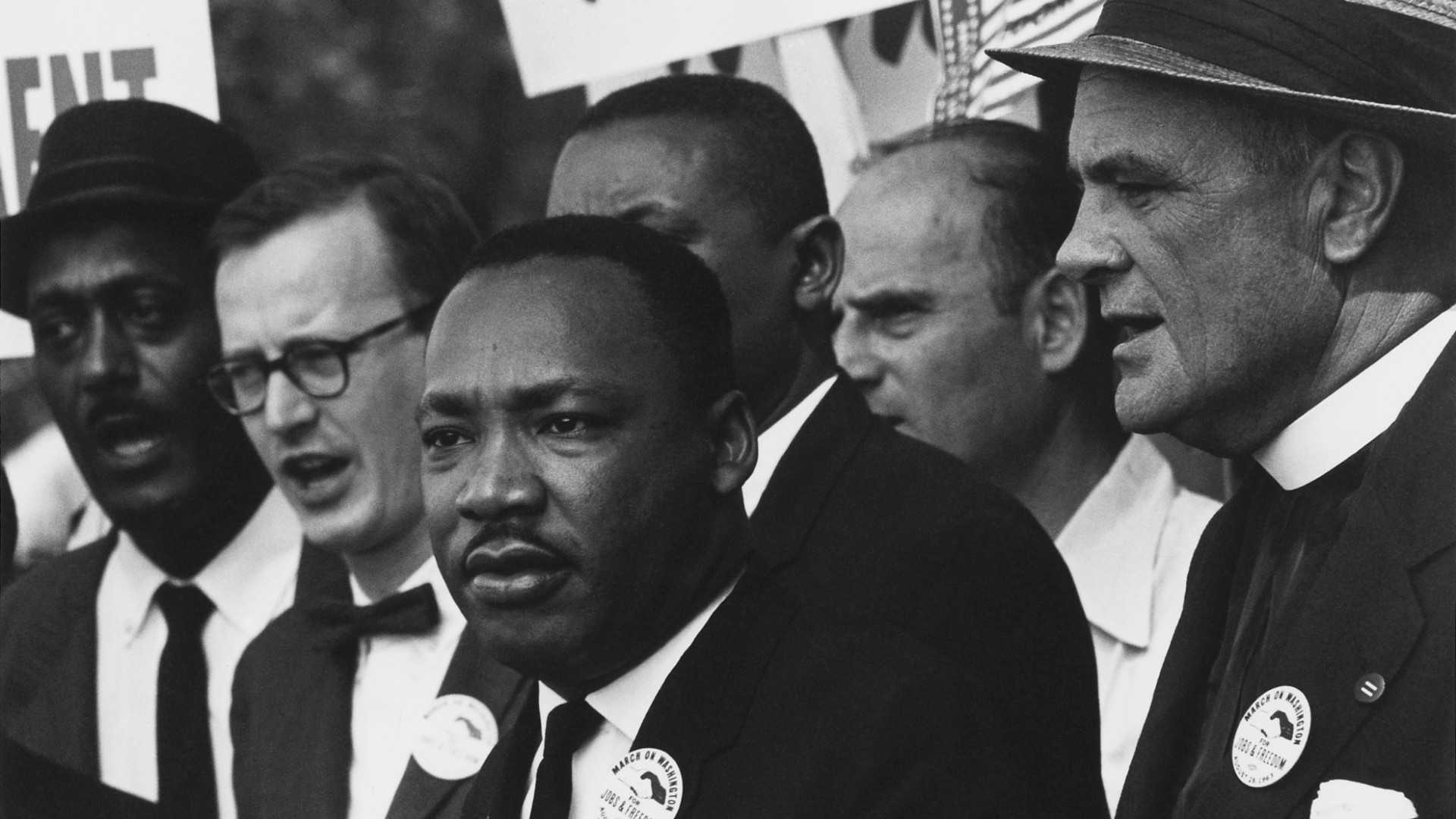A War-Torn Earth
The Second World War was arguably the most destructive war in history. At a time of rapid change in social, economic, political, and technological developments, the world shifted in many ways negatively and positively. From displaced families to new government treaties, these are 20 ways World War II impacted the whole world:
1. Civilian Deaths
Reports say that over 70 million people were killed in World War II, many of those being civilians. Across the world, people died from aerial bombs, racial executions, war-induced diseases and famine, and sinking ships. Battle casualties were only a fraction of the number of deaths created by this devastating war.
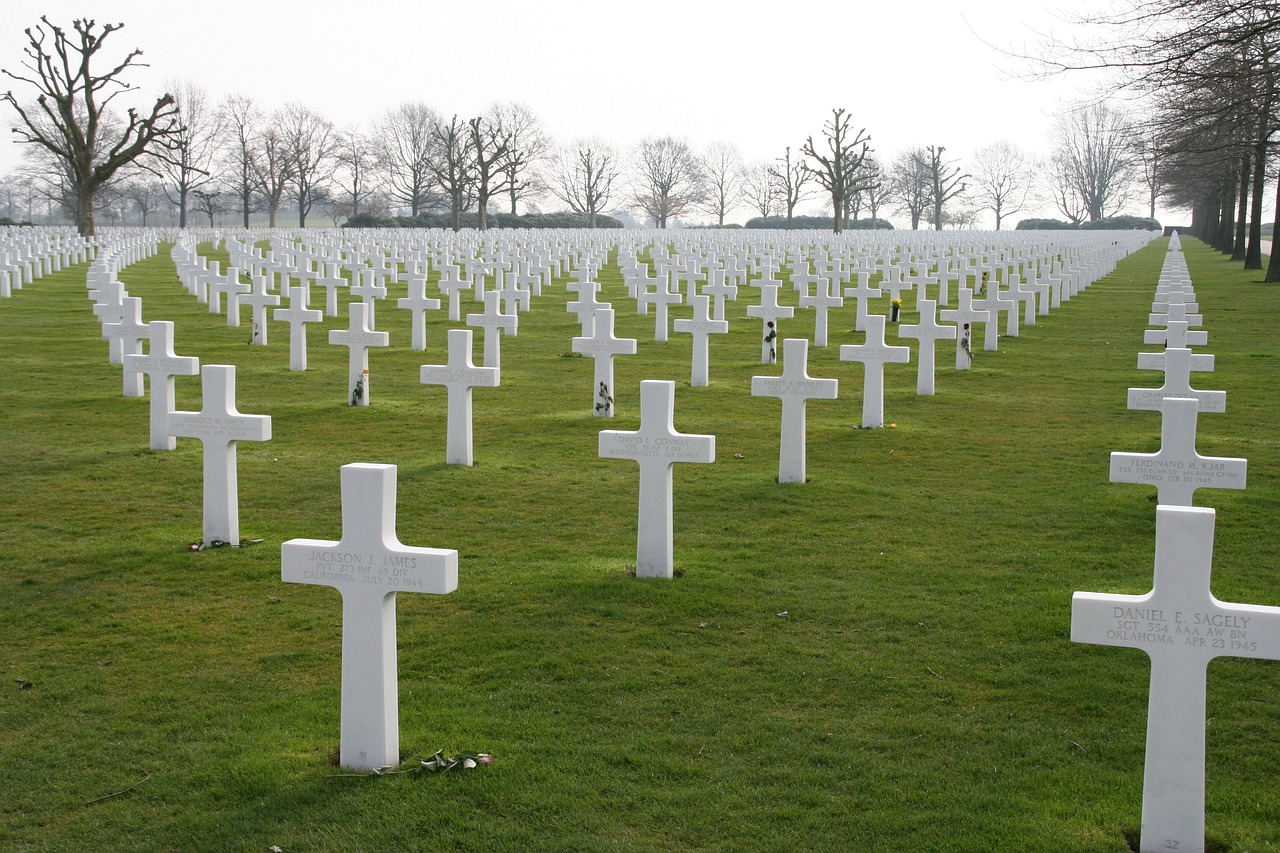 Pictures_With_Impact on Pixabay
Pictures_With_Impact on Pixabay
2. Cheerio, Churchill!
Shortly after the war in July 1945, the British elections showed some surprising results. The nation wanted political change and voted for Clement Attlee’s Labor Party. Winston Churchill and his Conservative party were thrown out of office.
3. Nazi Punishment
The world was not ready to forgive the Nazis. Nazi criminals who were responsible for crimes committed during the Holocaust were brought to trial. The Nuremberg Trials took place from 1945-1946 and held hearings for 22 major Nazi criminals, 12 of which were sentenced to death. Many others escaped and hid but Adolf Eichmann who deported millions of Jews, was sentenced to execution as late as 1961. The testimony of hundreds of witnesses and survivors was observed all over the globe.
4. New Policy
The Containment Policy developed by George Kennan was put in place to control the Soviet aggression without another war breakout. The fear of atomic weapons and the threat of communism spreading was a daunting fate they were trying to avoid. The new policy would help protect any country that was under threat of communist subversion. The Truman Doctrine was a similar policy implemented by the United States. The Greek Civil War was a driving factor when Greek communists tried to take over the country from 1946-1949.
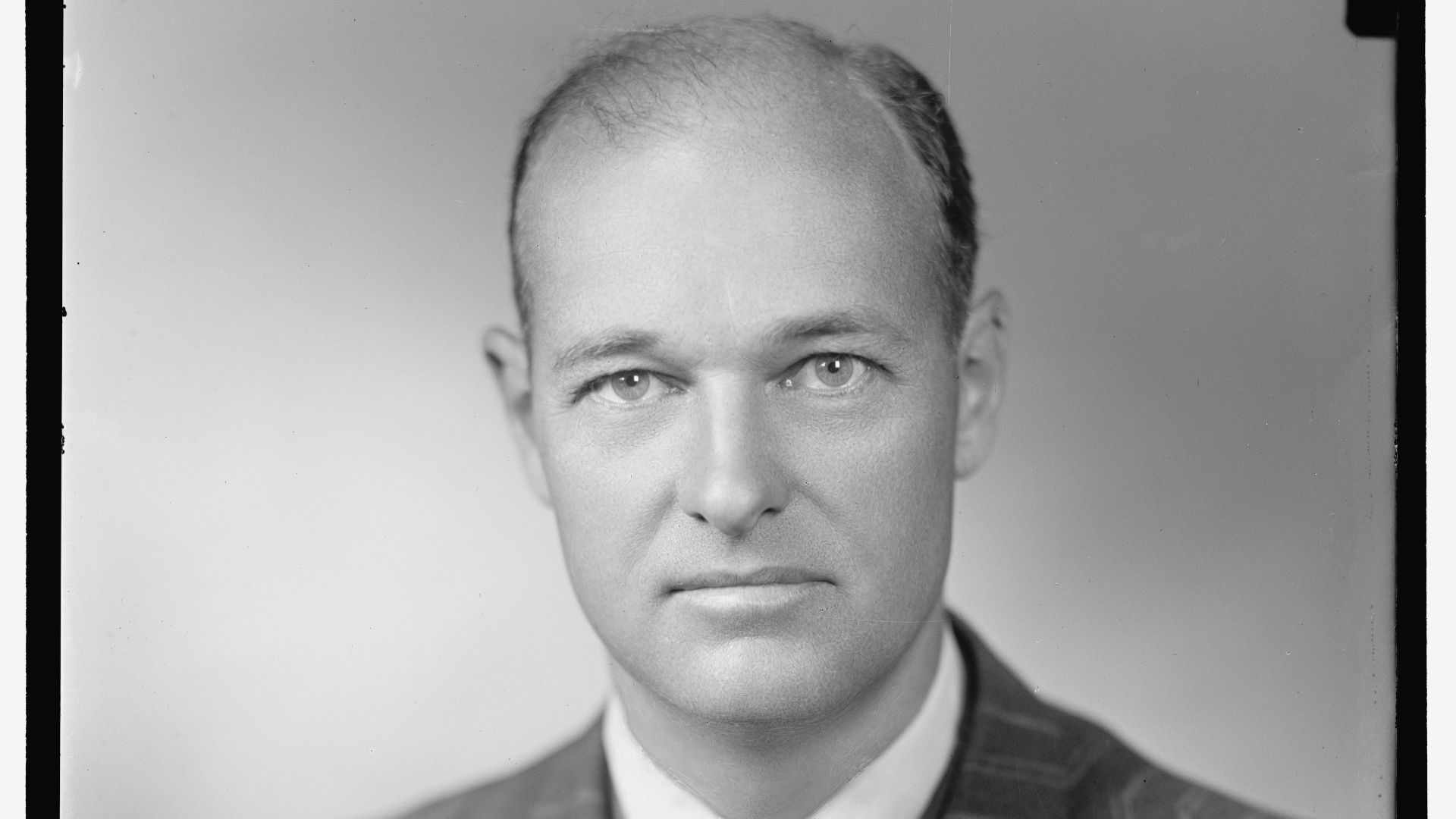 Harris & Ewing, photographer on Wikimedia
Harris & Ewing, photographer on Wikimedia
5. Creation Of The United Nations
Following the war, the United Nations was established. The international organization aimed to maintain peace and security among nations, bringing countries closer together, and establishing trust and cooperation. Over the years the UN has been involved in many international issues, from human rights to economic problems.
6. Population Displacement
Countries that suffered from the brutality of the Germans during the war were not pleased to have any German residents when it was over. Many Germans living outside of their homeland were deported and sent back to live in Germany. They weren’t the only people to relocate–– there was a mass movement of displaced people across Europe and the world that wouldn’t settle down until the 1950s.
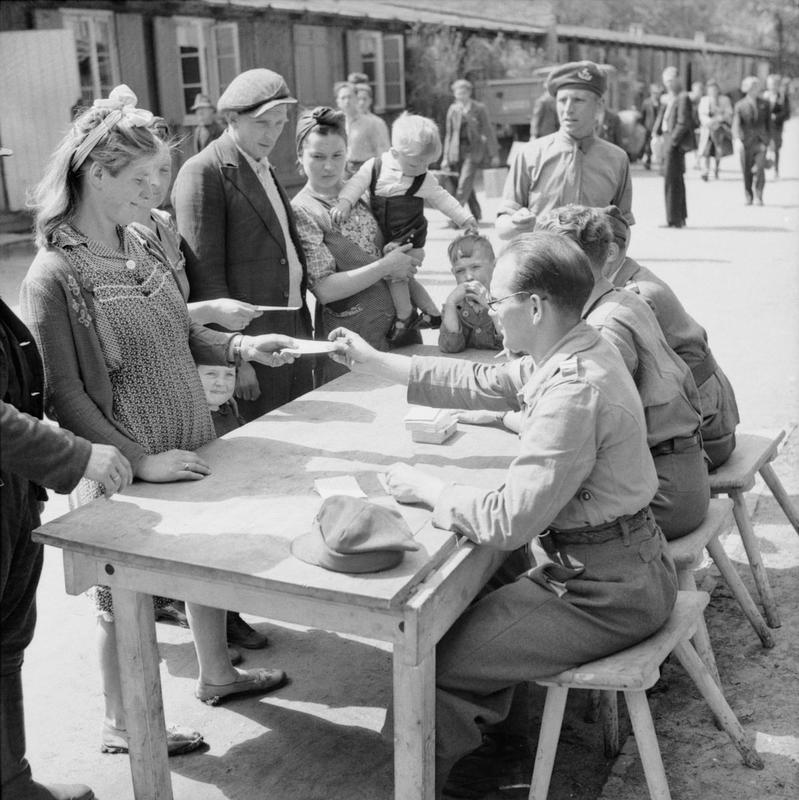 No 5 Army Film & Photographic Unit, Mapham J (Sgt) on Wikimedia
No 5 Army Film & Photographic Unit, Mapham J (Sgt) on Wikimedia
7. New Nations & Decolonization
As a result of the war, new borders were established as decolonization began. In 1947, British-occupied India became two independent countries–– India and Pakistan. Several nations in Asia and Africa gained independence from European colonial powers. Israel declared their own territory in 1949. The post-war map looks a lot different now than it did before the Second World War.
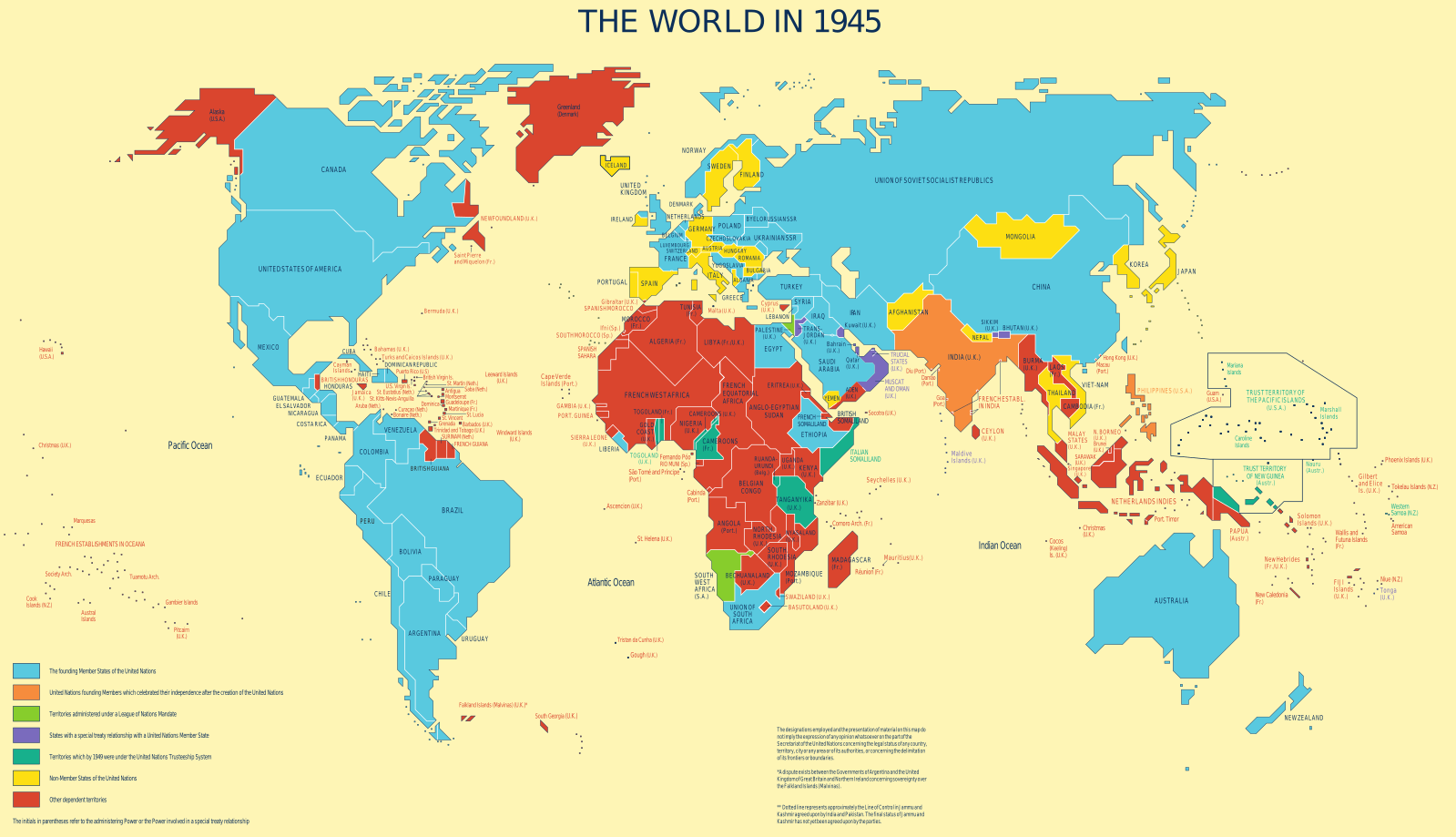 Wikicommons By United Nations Department of Field Support, Cartographic Section
Wikicommons By United Nations Department of Field Support, Cartographic Section
8. Formation Of NATO
The North Atlantic Treaty Organization was formed in 1949 as a result of the war. NATO was a military alliance created to “keep the Russians out, the Americans in, and the Germans down”. The member nations established an agreement to mutually defend each other under an attack by an external country.
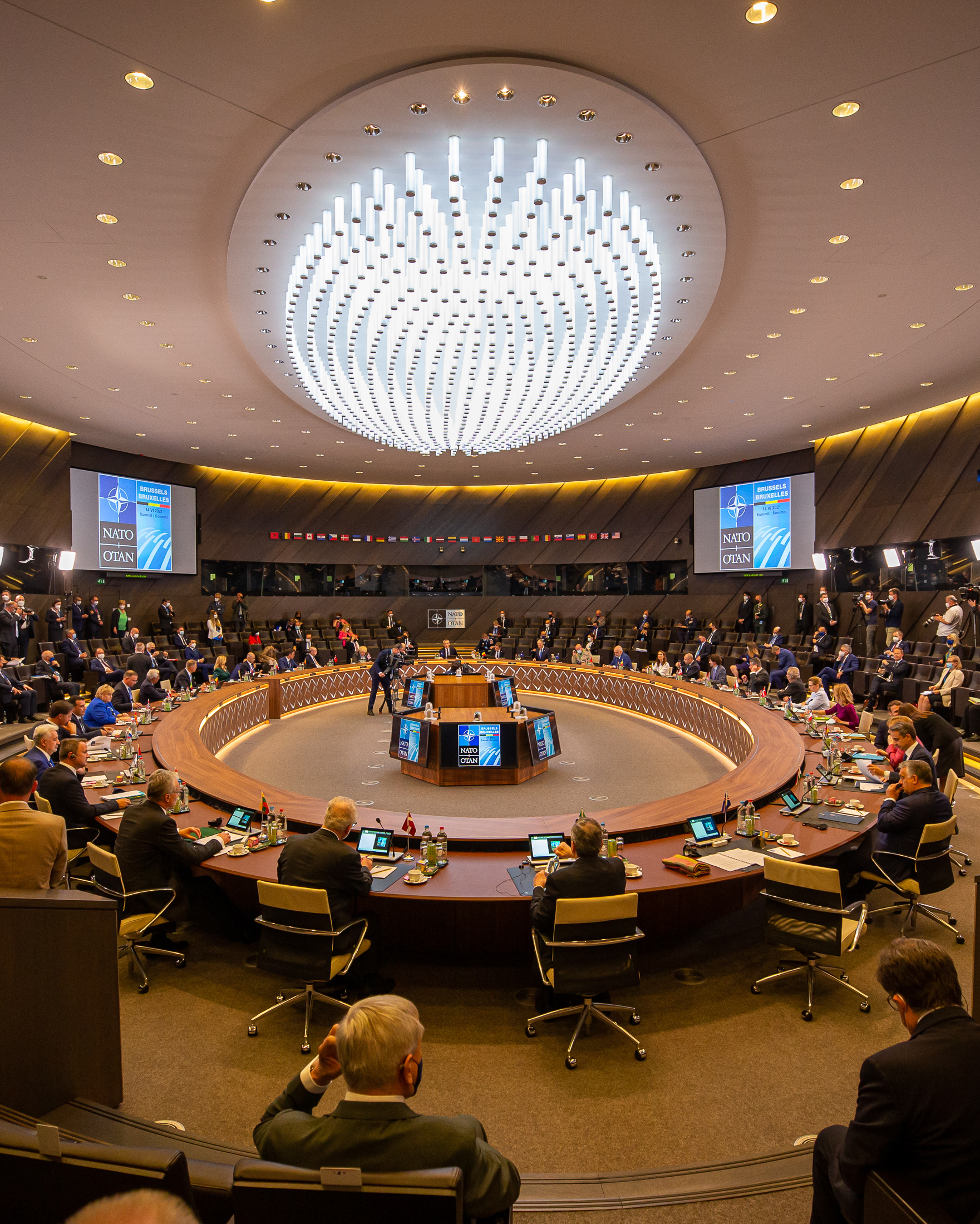 Влада на Република Северна Македонија on Wikimedia
Влада на Република Северна Македонија on Wikimedia
9. European Recovery
Much of Europe was a wreck in the aftermath of the war. Countries were desperate for reconstruction and the USA was one of the countries that swooped in to provide financial aid. The European Recovery Plan (a.k.a. The Marshall Plan) was established to help the reconstruction of Europe and 17 billion dollars was funded.
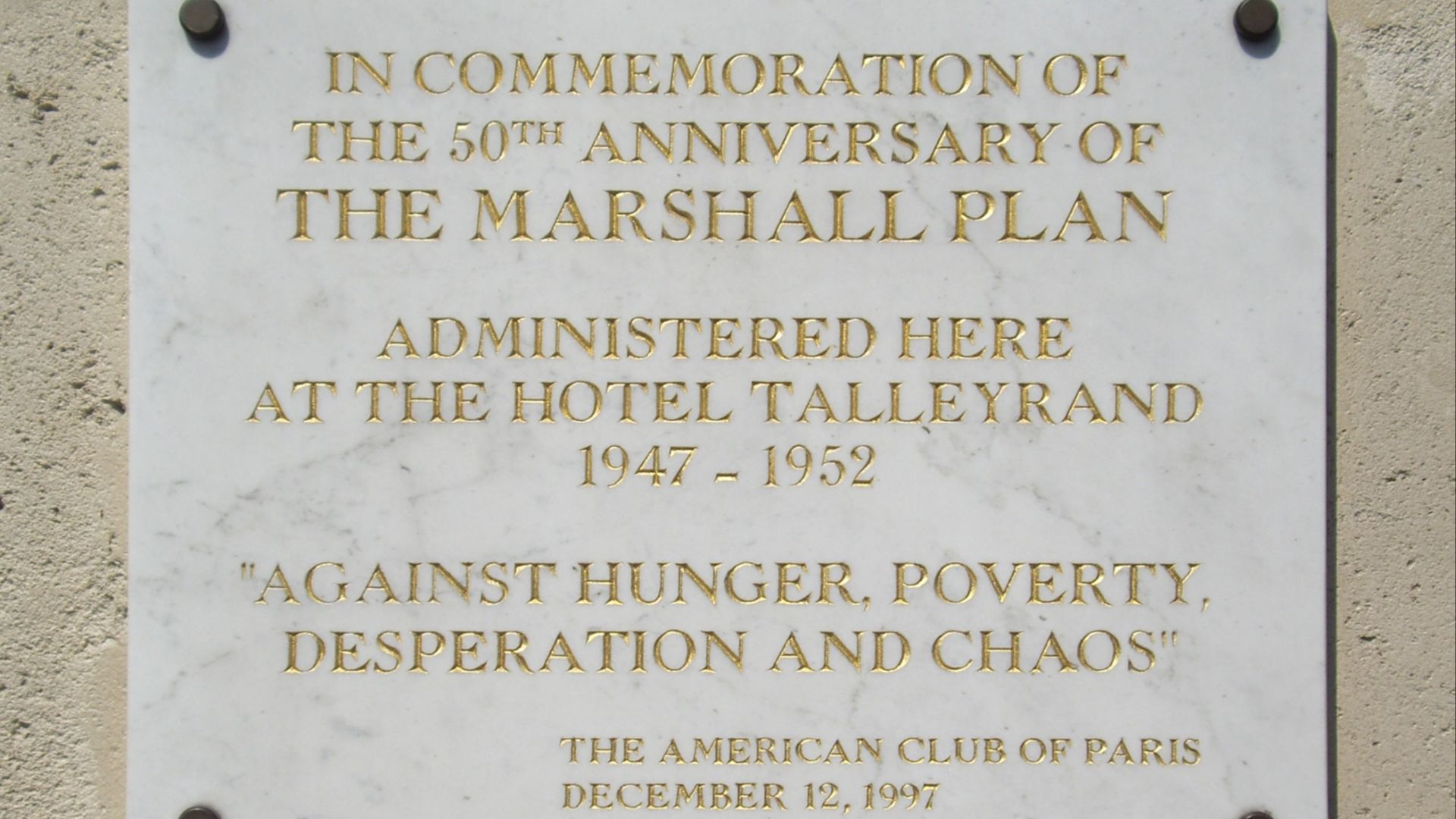 Wikimedia Commons / Mu on Wikimedia
Wikimedia Commons / Mu on Wikimedia
10. The Korean War
The end of World War II was not the end of war in Korea. Controlled by communists, North Korea invaded South Korea in 1950. After a ceasefire in 1953, the country is still split in two and the conflict has never been resolved. The Korean war has not officially ended yet.
11. The Cold War
The period between 1947 and 1991 was named the “Cold War” while the United States led a capitalist Western bloc against the Soviet Union’s communist Eastern bloc. Despite the Soviet's great attempt to run the world with communism and a threat of a nuclear war in 1962, the Soviet Union eventually collapsed in 1991.
12. Global Hunger
A long-run outcome of World War II was starvation and poor health. There was a deadly famine in Greece during 1941-1942 and a food crisis in the Netherlands in 1944. Other countries like German-occupied Poland were eating small rations. This led to long-term effects on the health of survivors after the war as well. Many people were malnourished and suffered from diseases and mental problems.
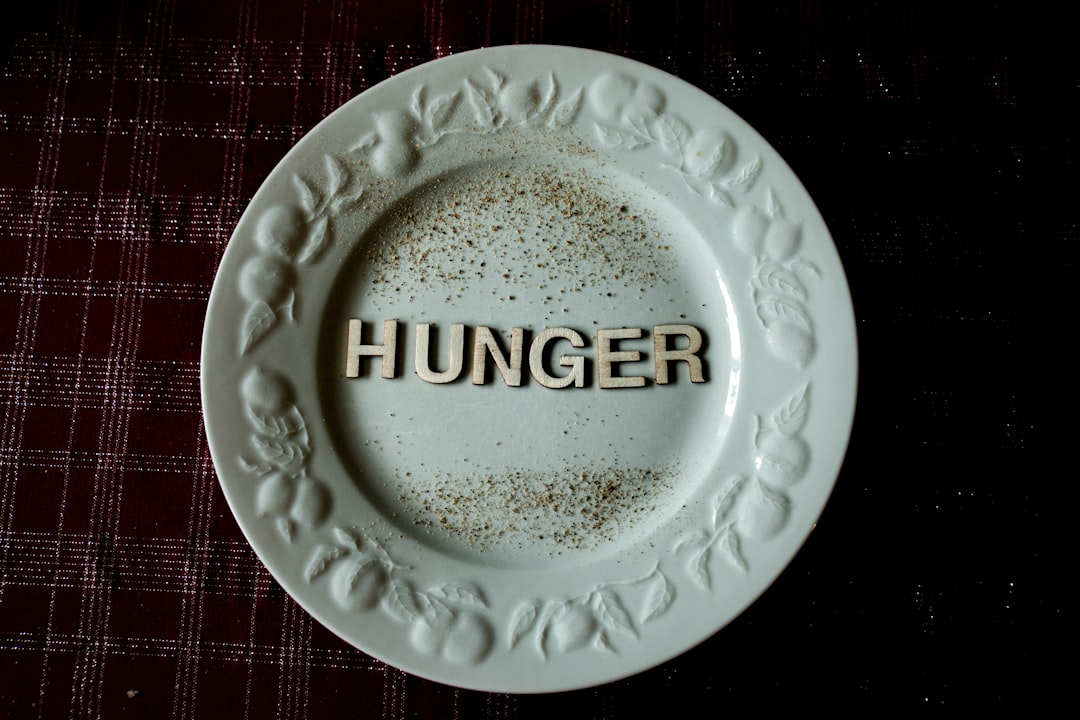 Siegfried Poepperl on Unsplash
Siegfried Poepperl on Unsplash
13. Economic Destruction
Along with the hunger crisis in many nations, war-torn countries suffered from other serious economic hardships as well. There was a shortage of fuel and essential goods, causing families and households to severely struggle. Economic disruption led to a poor quality of life for many, enforcing poverty and unbearable living conditions.
 Debangana.mukherjee on Wikimedia
Debangana.mukherjee on Wikimedia
14. Women In The Workforce
On a positive note, World War II increased the female population in the workforce. As many men were sent off to war, women took on roles in essential jobs like factory work and hospital care. Many women worked in the military as well as pilots or nurses treating wounded soldiers. After the war, women remained in the workplace and more jobs opened up to allow female workers.
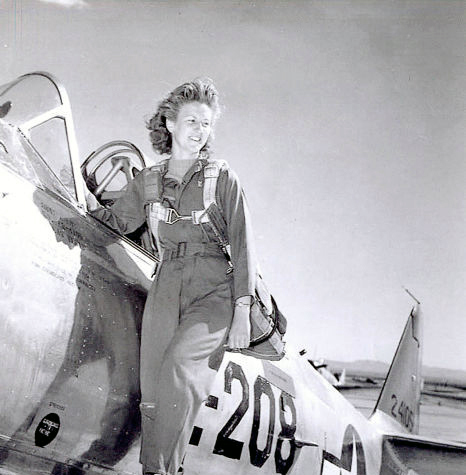 U.S. Air Force photo by Staff Sgt. Christopher Hubenthal on Wikimedia
U.S. Air Force photo by Staff Sgt. Christopher Hubenthal on Wikimedia
15. Technology Advancement
During the war, scientists and engineers were rapidly developing technologies to keep up with the worldwide fight. Not only did weapons need improvement to fight and defend, but communication and medical devices needed development too. From radio technology to synthetic rubber, these inventions helped people in combat and at home.
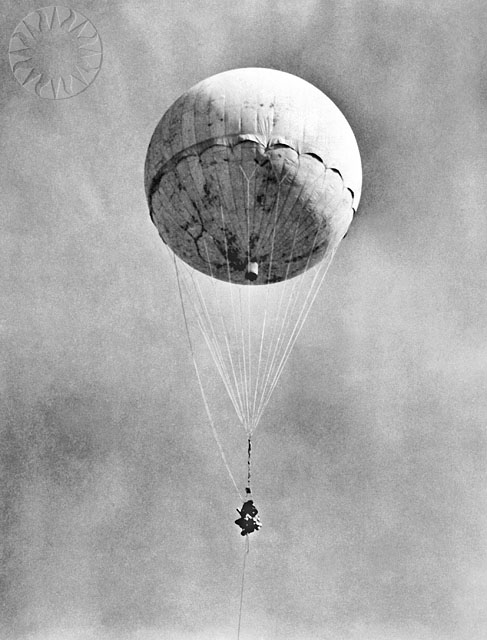 Unknown authorUnknown author on Wikimedia
Unknown authorUnknown author on Wikimedia
16. Medicine
The discovery of penicillin may have been rapidly advanced due to the war. In a race against death, scientists and researchers took Alexander Fleming’s findings to develop life-saving antibiotics for wounded soldiers. Penicillin and antibiotics revolutionized medicine and have prevented many deaths worldwide ever since its discovery.
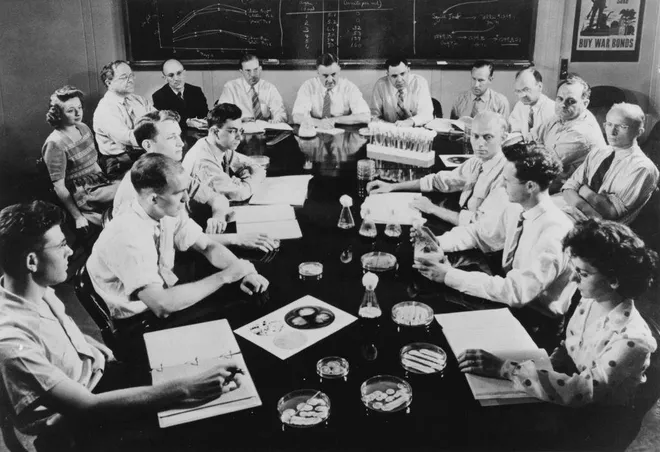 United States Department of Agriculture on Wikimedia
United States Department of Agriculture on Wikimedia
17. Widespread Trauma
Many survivors of the war were not able to survive the trauma it imposed on them. Soldiers, families, and Holocaust survivors alike experience the effects of trauma in their post-war lives. Psychiatric conditions such as PTSD and other mental health issues negatively impact people around the world.
18. Atomic Bomb
The atomic bomb may have ended the war and destroyed Japan but it also caused worldwide damage. Because it killed so many people in one blow, the threat of more atomic bombing has taken a toll on many. The aftermath of the bombing of Hiroshima and Nagasaki had life-long effects on survivors and their global friends and families.
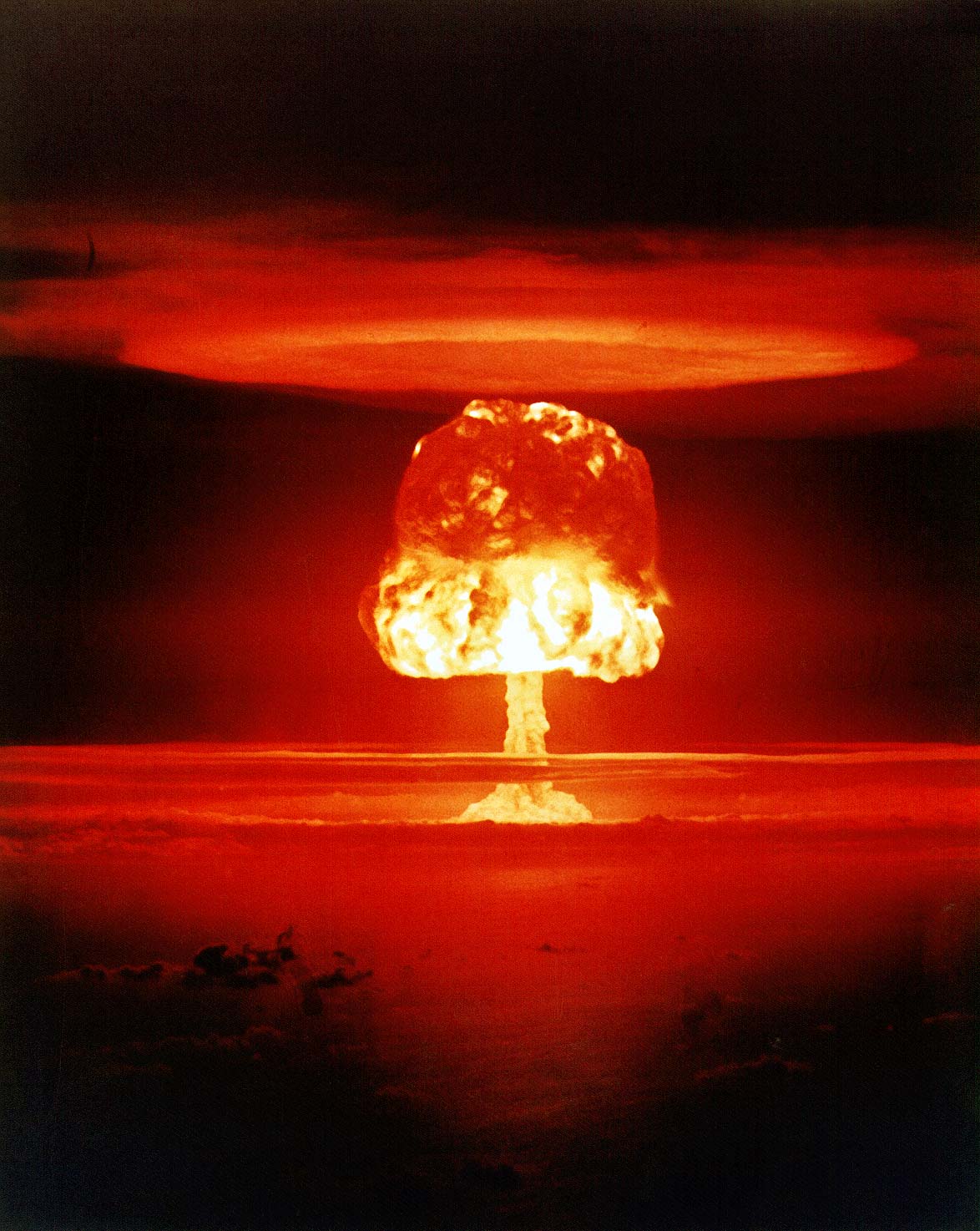 United States Department of Energy on Wikimedia
United States Department of Energy on Wikimedia
19. The Rise Of The USA
The United States emerged from World War II as a leading global power in military and economic terms. Compared to other nations, USA was in a relatively unscathed position and their armies held strong in several nations. They built alliances and army bases across the globe and wartime production pulled the economy out of depression.
20. World Racism
The war gave opportunities for African Americans to demand their civil rights, as soldiers and as citizens. Racism was still an issue of segregation and discrimination which enforced the Civil Rights Movement in the USA and fueled other nations to fight for equality. Considering the war started from racial prejudice, racism within a country fighting together seems hypocritical. There's still a long way to go but the end of the war sparked a huge flame, slowly burning down racism worldwide.
KEEP ON READING

The 10 Most Important English Authors & Their 10 Most…
Famous Pens, Less Famous Pages. There are a few names…
By Ashley Bast Dec 31, 2025
20 Historical Figures Who Became Martyrs for Their Cause
When Belief Becomes a Final Stand. Martyrdom transforms death into…
By Cameron Dick Dec 31, 2025
20 TV Shows That Made History and Broke Barriers
Survivor Reshaped The Television Landscape. Television has continually evolved, but only…
By Rob Shapiro Dec 31, 2025
10 Historical Royals Known For Their Intelligence & 10 For…
The Weirdest Kings. Intelligent royals brought us innovative and progressive…
By Farva Ivkovic Dec 31, 2025
10 Times The Lakers Made History & 10 Moments That…
Let’s Talk About the Lakers. Few teams have brought highs…
By Farva Ivkovic Dec 31, 2025
20 Most Significant Cars In American History
Driving Into the Past. The car has defined America as…
By Farva Ivkovic Dec 31, 2025

